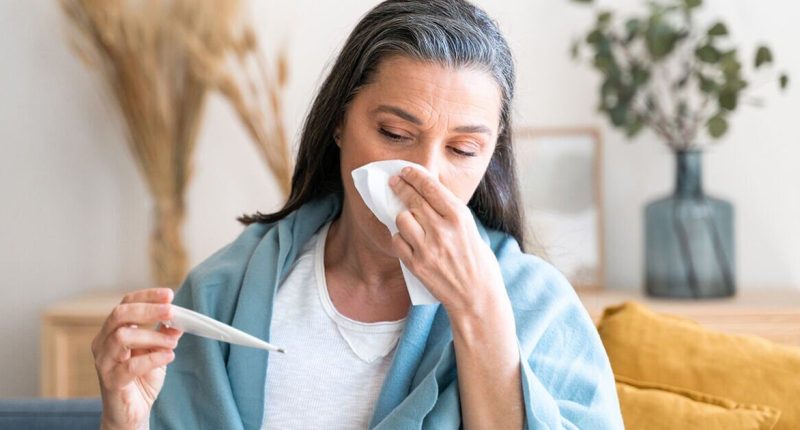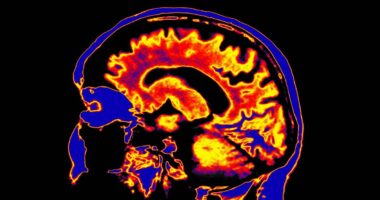Share this @internewscast.com
One key symptom can distinguish a Covid infection from hay fever. While the signs of these conditions can somewhat overlap, there are ways to differentiate them.
This year millions of Brits have been plagued by frustrating hay fever symptoms, with the Met Office reporting “very high” pollen counts in parts of the UK. Hay fever is an allergic reaction to airborne allergens, most commonly pollen.
It can result in sneezing, a blocked nose, headaches, and even a loss of smell. These are also all potential signs of COVID-19.
Doctor Luke Powles, associate clinical director at Bupa, commented to say: “Despite Hay fever being more common during the spring and summer, some people are affected by pollen from March to September. This can make it harder to tell if sniffs and sneezes are being caused by an allergy or an infection such as coronavirus.”
This is especially pertinent as a new Covid variant known as NB.1.8.1 (or Nimbus) is reportedly spreading across the UK. UK Health Security Agency (UKHSA) data shows that hospital admissions related to Covid have recently increased by nearly 10 per cent, with 947 patients admitted in the week ending May 31.
But there are ways to distinguish hay fever from Covid. The main sign to look for is a high temperature, which occurs when someone has coronavirus but not hay fever.
The NHS says this means “you feel hot to touch on your chest or back (you do not need to measure your temperature)”. It can also cause shivering.
Dr Powles added that you are “not likely” to experience a temperature with hay fever. And he said: “Athough a blocked nose due to hay fever can affect your smell or taste, completely losing your ability to taste or smell is more likely to result from coronavirus.”
Find out about the symptoms you need to watch out for and get health advice with our free health newsletter from the Daily Express
Moreover, you are likely to feel more generally unwell from Covid. “Hay fever symptoms aren’t usually serious and, generally, you won’t feel too ill,” he continued.
Covid can be serious in some cases and symptoms can last weeks, months, or in the case of long Covid, years. The NHS says: “The symptoms [of Covid] are very similar to symptoms of other illnesses, such as colds and flu.
“Most people feel better within a few weeks, but it can take longer to recover.” Covid can also cause gastrointestinal symptoms, which hay fever does not.
These include feeling or being sick and diarrhoea. If you think you have Covid, you should try to stay at home and avoid contact with other people if you or your child have symptoms and either:
- Have a high temperature
- Do not feel well enough to go to work, school, childcare, or do your normal activities.
The NHS says you can go back to your “normal activities” when you feel better or do not have a high temperature.
Hay fever symptoms typically include:
- Sneezing and coughing
- A runny or blocked nose
- Itchy, red or watery eyes
- Itchy throat, mouth, nose and ears
- Loss of smell
- Pain around the sides of your head and your forehead
- Headache
- Feeling tired
Covid symptoms can include:
- A high temperature or shivering (chills) – a high temperature means you feel hot to touch on your chest or back (you do not need to measure your temperature)
- A new, continuous cough – this means coughing a lot for more than an hour, or 3 or more Coughing episodes in 24 hours
- A loss or change to your sense of smell or taste
- Shortness of breath
- Feeling tired or exhausted
- An aching body
- A headache
- A sore throat
- A blocked or runny nose
- Loss of appetite
- Diarrhoea
- Feeling sick or being sick
















